Central African Republic
For many residents of the Central African Republic’s capital Bangui, the Ubangi river has been a lifeline.
Each day, hundreds of vendors use it to cross to the Democratic Republic of Congo, to bring back essentials that have grown scarce since militias seized the countryside.
Last December’s peaceful elections, the first after three years of violent turmoil, marked what many hoped is a step towards reconciliation and the restoration of stability.
But vendors here say they still struggle to make a living.
The scraps of an economy that exist outside of the capital have been hijacked by armed groups.
Fighters from all of the rival factions man checkpoints on roads, levying illegal taxes.
“We have suffered a lot throughout this crisis, we have had many challenges. We have to go buy our merchandise on the other side in Congo, and we have to pay heavy taxes. We struggle to sell any of the merchandise that we bring back. But we have no choice, this is how we make our living, that’s what we survive on,” said one vendor Madeleine Nzanga.
On February 20, the country’s electoral commission announced that former Central African Republic prime minister Faustin-Archange Touadera won a presidential run-off.
The result which is awaiting confirmation by the constitutional court, will see the former prime minister tasked with dragging his nation back from the abyss.
The elections, a period of relative peace amid the crisis, and the concession of defeat by Touadera’s opponent Anicet-Georges Dologuele, have been lauded by observers as an indication the beleaguered nation is now ready to turn the page.
But unless the new president can solve the riddle of how to wrest control of the economy back from the warlords and reverse decades of neglect and armed conflict, officials warn there is little likelihood the chaos will end.
“You have two scenarios today. The crisis has affected the economy but it has also benefited individuals who do not want to see peace and benefit from the country being at war. Some armed groups occupy some of the country’s territory and plunder the natural resources, as well as controlling all the movement of all agriculture products, like the trade of coffee and other agriculture products,” said Dominique Said Panguindji, spokesman for the current transitional government.
Amid a decades-long disintegration of the state, once lucrative cotton and coffee sectors evaporated.
Development of significant gold, diamond and uranium resources was hobbled by an endless cycle of coups and rebellions that have seen major investors give the former French colony a wide berth.
Then came 2013 when mainly Muslim Seleka rebels toppled President Francois Bozize. Their abuses provoked a backlash from Christian so-called anti-balaka militias.
Thousands have died in the subsequent violence, and a fifth of the population has fled their homes.
No one is under any illusions as to the dire state of Central African Republic, not even those who had vied to lead it.
The question is how to turn things around.
“With the current situation in CAR as it is right now, it will be difficult to turn the economy around. I am not saying it’s impossible, but it will be difficult to put in place measures of reform because there are still several armed groups. What are their position regarding the new administration and how will they react to their policies?” said political analyst Jean Baptiste Kouame.
Already heavily reliant upon foreign aid and humanitarian agencies before the current crisis, the needs in Central African Republic are even greater now.
The international community financed 40 percent of the current transitional government’s 2015 budget, which did little more than cover running costs and the salaries of civil servants.
The new leadership will need to find the funds to rebuild the army, redeploy civil servants and begin to rehabilitate crumbling infrastructure to create conditions for the economy to start functioning again.



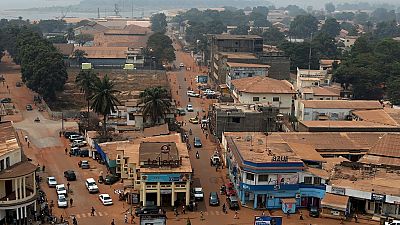


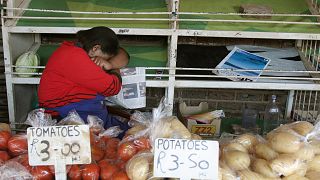
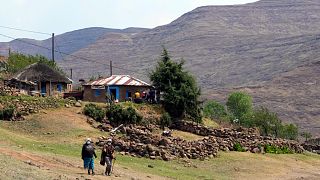
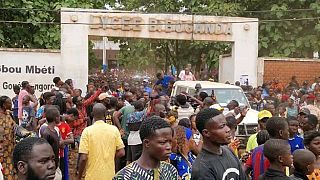
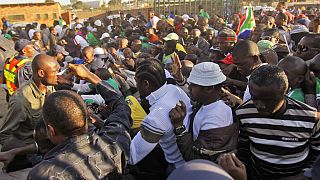
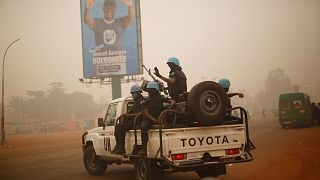



Go to video
Gaza’s scarcity of cash fuels desperation, sparks unusual trade
02:35
Central African Republic's major rebel groups to disarm, dissolve
01:08
Dancehall superstar Shatta Wale urges young people to back President Mahama
01:54
"Great economic potential in Africa": five African leaders have lunch with Trump
Go to video
Cameroon imposes significant penalties on Telecom giants Orange and MTN